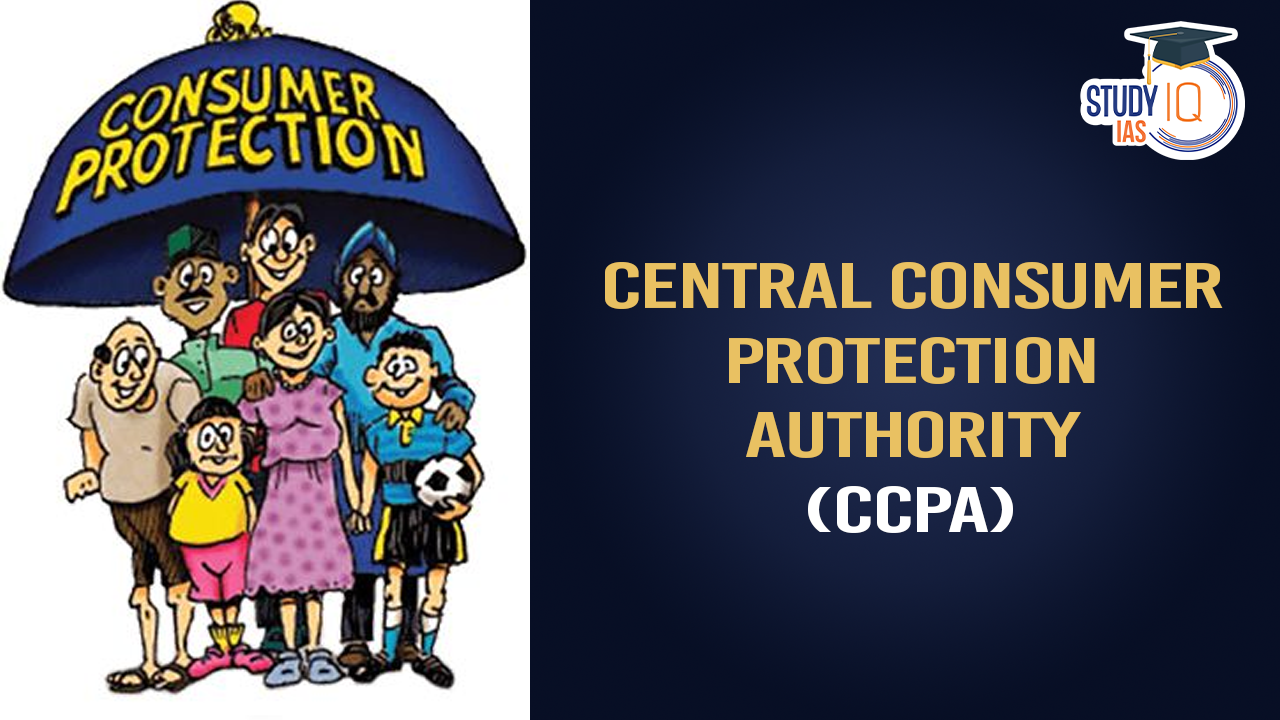Table of Contents
Context: The Central Consumer Protection Authority (CCPA) has imposed a ₹10 lakh fine on ride-hailing platform Rapido for running misleading advertisements and unfair trade practices, and has directed the company to refund affected customers.
Central Consumer Protection Authority (CCPA)
- Central Consumer Protection Authority is a regulatory authority set up in 2020 under Section 10(1) of the Consumer Protection Act, 2019
- Nodal Ministry: The Ministry of Consumer Affairs, Food and Public Distribution.
- Objective: To promote, protect and enforce the rights of consumers as a class.
- Timeline: The 2019 Act replaced the 1986 Act, notified on 9th August 2019, and enforced from 20th July 2020.
Composition
- The CCPA is led by a Chief Commissioner, with two commissioners overseeing goods and services, respectively.
- An Investigation Wing, headed by a Director General, forms part of the CCPA.
- Additionally, District Collectors are empowered to probe consumer rights violations, unfair practices, and deceptive advertising.
Term of Office
The Chief Commissioner and Commissioner serve a term of five years from their start date or until reaching 65 years of age, whichever comes first. They are eligible for reappointment.
Qualifications
- Qualifications for Chief Commissioner: Candidates must have at least 25 years of professional experience and be knowledgeable in fields like law, public affairs, administration, economics, business, commerce, industry, finance, management, technology, advertising, public health, medicine, food, product safety, standardisation, quality management, or other relevant areas.
- Qualifications for Commissioner: A minimum of 20 years of professional experience is required in similar fields as mentioned for the Chief Commissioner. The person should also demonstrate ability, integrity, and standing.
Powers And Functions of CCPA
- The CCPA has the authority to independently inquire into or investigate consumer rights violations and unfair trade practices, act on complaints, or follow central government directives.
- It can mandate the recall of goods or cessation of services deemed hazardous.
- The authority is empowered to order refunds for recalled goods or services and to halt unfair practices detrimental to consumer interests.
- For false or misleading advertisements, the CCPA can impose penalties of up to ₹10 lakh and a two-year imprisonment for first offenders, escalating to ₹50 lakh and five years for repeat offences.
- Endorsers of such deceptive ads may face a ban on endorsements for up to one year, extending to three years for subsequent violations.
- The CCPA can file complaints against violations of consumer rights or unfair practices with District, State, or National Consumer Disputes Redressal Commissions.
| Consumer Protection Act, 2019 |
Significant features of the Act
|
Ethical Issues of Such Advertisements
- Deception: Misleading consumers with false promises → violates the right to informed choice.
- Exploitation of Trust: Using celebrities/influencers to mislead consumers into unsafe or overpriced choices.
- Unfair Advantage: Companies gain unfair market power by tricking buyers instead of fair competition.
- Harm to Consumers: Financial loss, safety risks, disappointment → especially vulnerable groups (elderly, students, poor).
- Erosion of Consumer Confidence: Misleading ads reduce trust in brands and the overall market.
- Moral Responsibility: Companies should focus on truthful transparency, not exploitative persuasion.
Legal Framework for Misleading Advertisements in India
- Consumer Protection Act, 2019
- Defines misleading advertisement.
- Empowers the CCPA to impose penalties, order discontinuation, and ban endorsers.
- Cable Television Networks (Regulation) Act, 1995
- Prohibits misleading/false ads on cable TV.
- Drugs and Magic Remedies (Objectionable Advertisements) Act, 1954
- Restricts misleading medical/health-related ads.
- Food Safety and Standards Act, 2006
- Penalises false claims in food advertisements.
- Legal Metrology Act, 2009
- Regulates misleading packaging and labelling practices.
- ASCI (Advertising Standards Council of India) Guidelines (self-regulation)
- Voluntary code ensuring ads are honest, not offensive, and do not exploit consumers.


 Important Reports and Indices in News (2...
Important Reports and Indices in News (2...
 Supreme Court to Examine Scope of 'Right...
Supreme Court to Examine Scope of 'Right...
 Why Iran Matters More Than Venezuela: En...
Why Iran Matters More Than Venezuela: En...

























